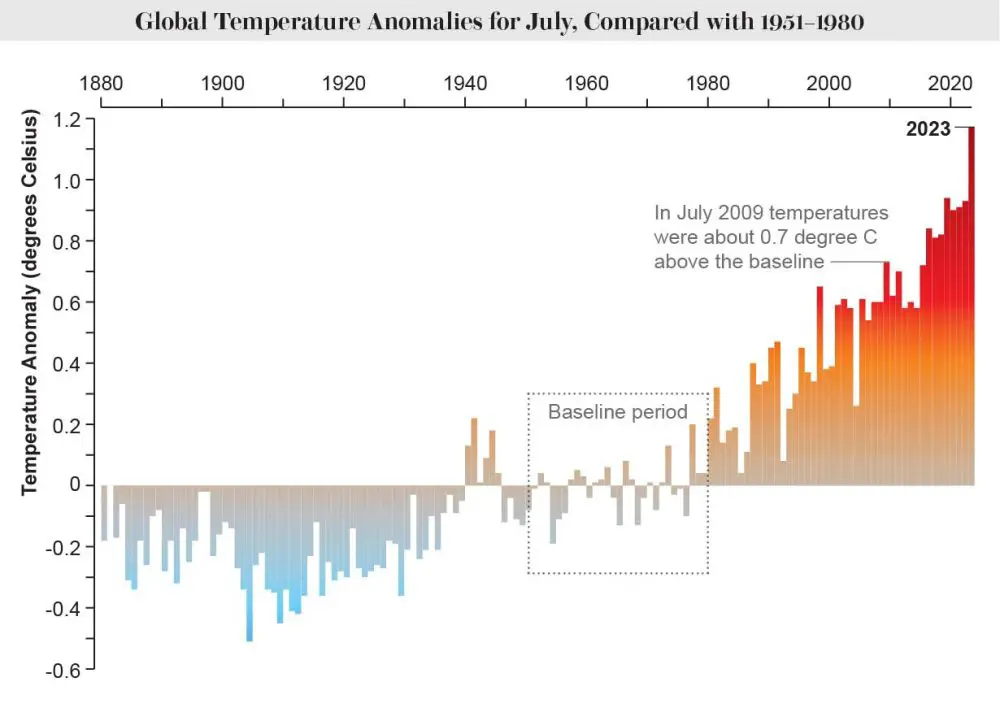
An excessive heat warning is in effect today in inland and coastal Flagler County, including Palm Coast and Flagler Beach, from 10 a.m. to 8 p.m. The warning means that dangerously hot conditions with heat index values up to 115 are expected, according to the National Weather Service in Jacksonville. The heat ide value applies in the shade. Flagler County Emergency management puts the range of the heat index between 112 and 117.
The forecast for the rest of the week is not much different: as of today, the heat index for Flagler-Palm Coast is expected to range between 114 and 116 every day at least through Friday.
Actual highs are expected in the mid-90 range. But the heat index is the heat your body will feel when exposed to the combination of temperature and humidity. The body has a natural ability to reduce its temperature by perspiring. But high humidity hampers perspiration’s ability to evaporate, thus reducing the body’s ability to regulate its temperature.
Extreme heat and humidity will significantly increase the potential for heat related illnesses–heat cramps, heat exhaustion, heat stroke–particularly for those working or participating in outdoor activities. The Weather Service urges residents to drink plenty of fluids, stay in an air-conditioned room, stay out ff the sun, and check up on relatives and neighbors. Young children and pets should never be left unattended in vehicles under any circumstances.
Read Related Also: Notting Hill carnival revellers URINATED on police officers, Met union chief reveals – as union boss says level of violence is 'unsustainable' and event must be moved
The temperatures are a direct reflection of a warming planet due to human activity, on the heels of the hottest month ever in July, around the globe. The previous record was set in July 2019. Heat records have been broken routinely since 1980, with accelerating intensity.
In mid-July, National Oceanic and Atmospheric Administration reported that “water temperatures throughout the Gulf of Mexico and in the Caribbean Sea have been approximately 1.8-5.4˚F (1-3˚C) warmer than normal. Temperatures around Southern Florida are the warmest on record (going back to 1981).” That has raised concerns about hurricane season, which is moving toward its peak period in September.
For now there is no tropical storm activity in the forecast for the next 48 hours. Ocean heat is putting corals in South Florida in extreme danger. Itw on;t take much: “If the heat stress does not subside, the coral will die,” NOAA reports. “Mortality becomes likely if the corals experience ocean temperatures of 1°C greater than the historical maximum monthly average for two months, or 2°C greater than the historical maximum monthly average for one month.
![]()











